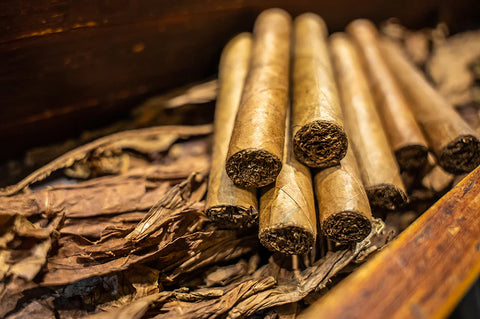Storing premium cigars correctly is essential for maintaining their quality, flavor, and overall smoking experience. Whether you are a seasoned aficionado or new to the world of cigars, understanding the fundamentals of cigar storage will ensure that each puff delivers the intended richness and aroma. Improper storage can lead to dry, brittle cigars or even mold growth, ruining your investment and enjoyment. This blog will guide you through the best practices for storing your prized cigars.
Why Proper Storage Matters
Cigars are crafted from natural tobacco leaves, which are sensitive to environmental conditions such as humidity, temperature, and airflow. When cigars are stored improperly, they can lose moisture and flavor or become overly moist, inviting mold and damaging the wrapper. Preserving the ideal environment keeps cigars fresh, prevents damage, and allows them to age gracefully if desired.
Ideal Conditions for Cigar Storage
The two most critical factors in cigar storage are:
-
Humidity: The ideal relative humidity (RH) level for storing cigars is between 65% and 70%. This moisture level keeps the tobacco leaves supple and prevents drying out.
-
Temperature: Cigars should be kept at a stable temperature of about 65°F to 70°F (18°C to 21°C). Higher temperatures can accelerate tobacco aging and cause beetle infestations, while lower temperatures may dry out the cigars.
Storage Options for Cigars
-
Humidor: The Gold Standard
A humidor is a specially designed box or room that controls humidity and temperature for cigars. It’s lined with Spanish cedar, which helps regulate moisture and adds pleasant aromas. Humidors come in various sizes, from small desktop models to large walk-in rooms.
-
Tips for Using a Humidor:
-
Season your humidor before use by wiping the interior with distilled water to activate the cedar lining.
-
Use a reliable hygrometer to monitor humidity levels.
-
Maintain humidity using distilled water or propylene glycol solutions.
-
Rotate cigars occasionally to ensure even humidity distribution.
-
-
-
Coolers and Zip-Lock Bags: Temporary Storage
If a humidor isn’t available, you can temporarily store cigars in a sealed plastic bag with a small humidification device or a damp sponge wrapped in foil (never directly touching cigars). This method can maintain humidity for short periods but isn’t ideal long-term.
-
Tupperware or Airtight Containers
Large, airtight plastic containers lined with Spanish cedar or a humidification pouch can serve as makeshift humidors. They can be a budget-friendly option for moderate cigar collections.
Additional Storage Tips
-
Avoid Direct Sunlight: Sunlight and UV rays can dry out cigars and degrade tobacco oils.
-
Keep Away from Strong Odors: Cigars can absorb surrounding smells, so avoid storing them near perfumes, spices, or chemicals.
-
Do Not Refrigerate: Refrigerators have fluctuating temperatures and too low humidity, which damages cigars.
-
Check Regularly: Monitor cigars frequently for signs of dryness, mold, or beetle damage.
Aging Cigars
For those interested in aging cigars, maintaining the ideal conditions for several months to years can mellow flavors and create complex profiles. Proper storage is even more crucial for aging, as fluctuations can negatively impact the process.
By investing in proper storage methods and understanding your cigars' environmental needs, you will preserve their taste, texture, and aroma for an optimal smoking experience. Whether you’re keeping cigars for a special occasion or long-term enjoyment, these storage tips ensure your collection remains fresh and enjoyable.





